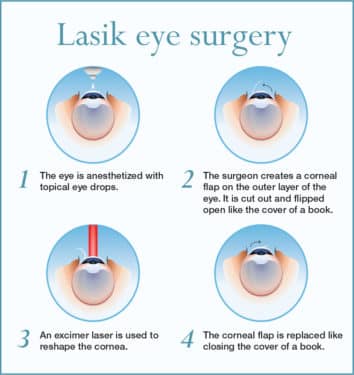Just How To Support A Loved One Encountering Cataract Surgical Treatment: A Caretaker'S Point Of View
Just How To Support A Loved One Encountering Cataract Surgical Treatment: A Caretaker'S Point Of View
Blog Article
Authored By-Brooks Schneider
As a caregiver sustaining a loved one facing cataract surgical treatment, your duty is essential in ensuring their comfort and recuperation. From pre-surgery preparations to post-operative treatment, your existence and assistance can make a substantial difference in their trip. Recognizing the psychological and physical difficulties they may run into, providing functional help, and being their pillar of assistance are key elements in this procedure. Bear in mind, your duty exceeds simply providing help; it has to do with being a source of strength and comfort during a significant stage in their life.
Understanding Cataract Surgical Treatment Process
Checking out the steps associated with cataract surgery can aid reduce any kind of stress and anxiety or uncertainty you might have regarding the procedure. Laser Correction Surgery Cost is a common and very effective treatment that includes removing the gloomy lens in your eye and changing it with a clear fabricated lens.
Before the surgical treatment, your eye will be numbed with eye declines or an injection to guarantee you don't feel any kind of discomfort throughout the treatment. The doctor will certainly make a little cut in your eye to access the cataract and break it up making use of ultrasound waves before thoroughly removing it.
Once the cataract is gotten rid of, the artificial lens will certainly be put in its place. mouse click the next web page takes about 15-30 mins per eye and is usually done one eye at a time.
After the surgical procedure, you may experience some light discomfort or blurred vision, yet this is normal and should boost as your eye heals.
Readying for Surgery Together
To make sure a smooth and trouble-free experience, getting ready for cataract surgery together can make a substantial difference in your loved one's trip. Start by participating in pre-surgery consultations with them. In this manner, you can ask inquiries, recognize the treatment, and offer emotional support.
Help them organize their pre-operative instructions, drugs, and transportation to and from the surgical facility. Make certain their home awaits their healing by establishing a comfy area with very easy access to vital things.
Help them in scheduling post-operative care if needed, such as aid with dishes or family tasks. Motivate them to adhere to the physician's recommendations pertaining to fasting prior to surgical treatment and drug methods.
Assure them that you'll be there for them every step of the way. By actively participating in the prep work procedure, you can relieve stress and anxiety and make certain that your liked one really feels sustained and cared for during this important time.
Post-Operative Care Tips
After cataract surgery, providing correct post-operative treatment is important for your enjoyed one's recuperation. Ensure they wear the safety shield over their eye as advised by the physician. Help them provide prescribed eye drops and medications on schedule to stop infection and help recovery.
Urge your liked one to prevent touching or rubbing their eyes, as this can bring about issues. Assist them in complying with any type of constraints on bending, raising hefty items, or taking part in difficult tasks to prevent strain on the eyes. Make certain they participate in all follow-up consultations with the eye medical professional for monitoring progress.
Keep the eye area tidy and completely dry, preventing water or soap straight in the eyes. Urge your loved one to use sunglasses to safeguard their eyes from intense light and glow throughout the healing process. Hold your horses and helpful as they recoup, offering help with daily jobs as required.
Final thought
To conclude, supporting a liked one with cataract surgical treatment entails being there every action of the means, from pre-surgery preparations to post-operative treatment. Your emotional support, functional aid, and support can make a substantial difference in their recuperation process. By staying notified, organized, and mindful to their demands, you can assist make sure a successful outcome and provide them with the comfort and reassurance they require throughout this difficult time.
